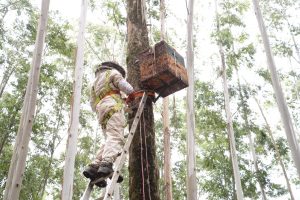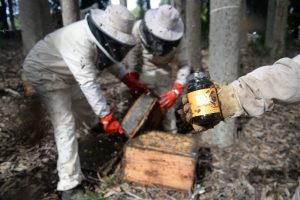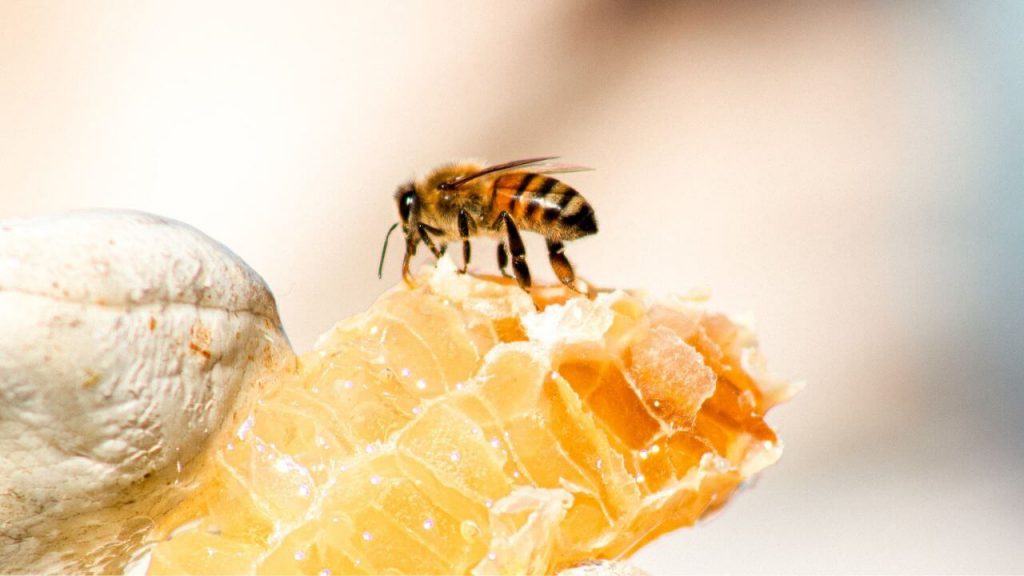The humble honey bee has a major impact on our food supply chain.
Many of our favourite fruits and veggies are available to us thanks to the bees – from blueberries, raspberries and strawberries to pumpkins, butternuts and carrots, the honey bee is hard at work keeping these crops in our kitchens.
That’s why partnerships between businesses like Sappi and Bee Naked Honey Farms play an important role in offering the bees a home to work their magic. Sappi owns and leases 394 000 hectares of sustainably managed forests in South Africa while Bee Naked Honey Farms provide pollination services to local farmers, and together they’ve formed a partnership that benefits both the forests and the bee population.
Bees need trees
Forests provide a safe haven for bees, and bees in turn offer an essential service to the fauna and flora in the forests. In the Lowveld of Mpumalanga, Bee Naked Honey Farms have placed hives in the Sappi tree plantations to help increase the bee population in the area.
As the demand for pollination continues to grow, it’s becoming more important than ever to sustain the honeybee colonies. Mike Allsop, Head of Beekeeping at the Agricultural Research Council, shares more about the rising demand:
“While accurate data is limited, best estimates show that the demand for commercial honeybee pollination is set to increase by 15-20% per year in South Africa. When you consider that there are already not enough managed honeybees to meet SA’s pollination demands, coupled with the fact that the amount of foraging territory available to honeybees continues to dwindle, it’s easy to see why this spells trouble for not only our honeybees, but our food supply chain and the complex web of life they support.”

Bee-friendly forages
The Cape’s canola fields and the eucalyptus forests of the Lowveld and KwaZulu-Natal are the two key crops for the building of honeybee colonies. Without them, South Africa’s commercial crops would be in serious trouble. By being aware of the relationship between honey bees and agriculture, we can do our part to spread the word and support local honey farms and beekeepers.

If you’re looking for a way to help the honey bees at home, try planting bee-friendly forages in your garden. A few examples include lavender, rosemary, sage, and thyme. Plus, having these herbs in your garden means you’ll always have fresh ingredients on hand for home cooking.
ALSO SEE: 6 Things You Probably Didn’t Know About Honey:
Feature Image: Unsplash

